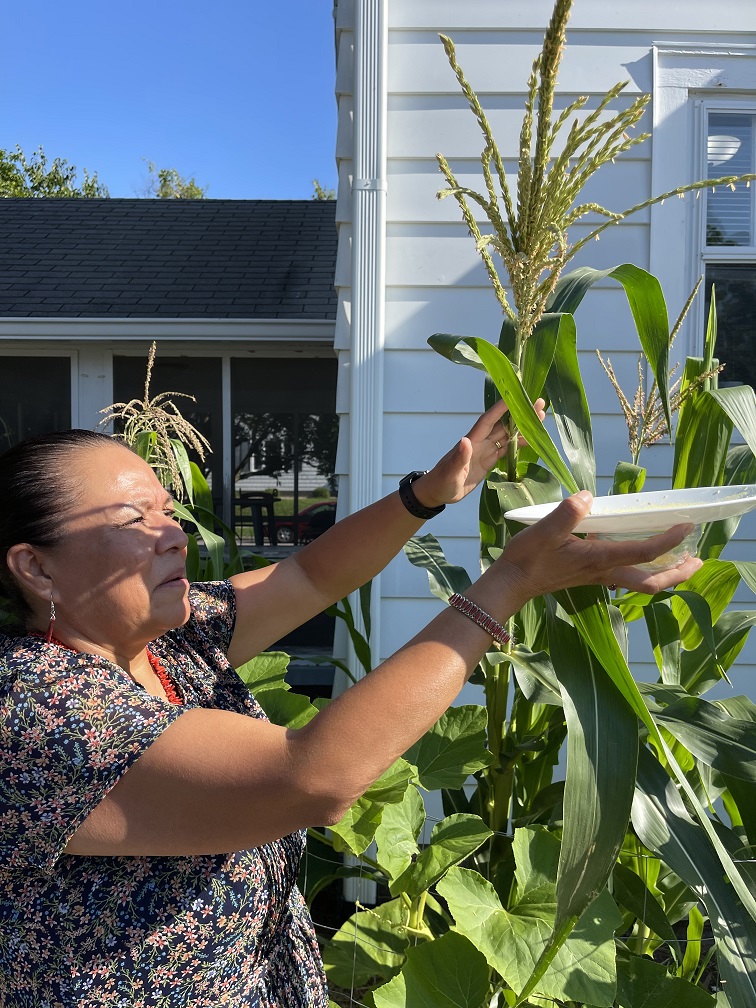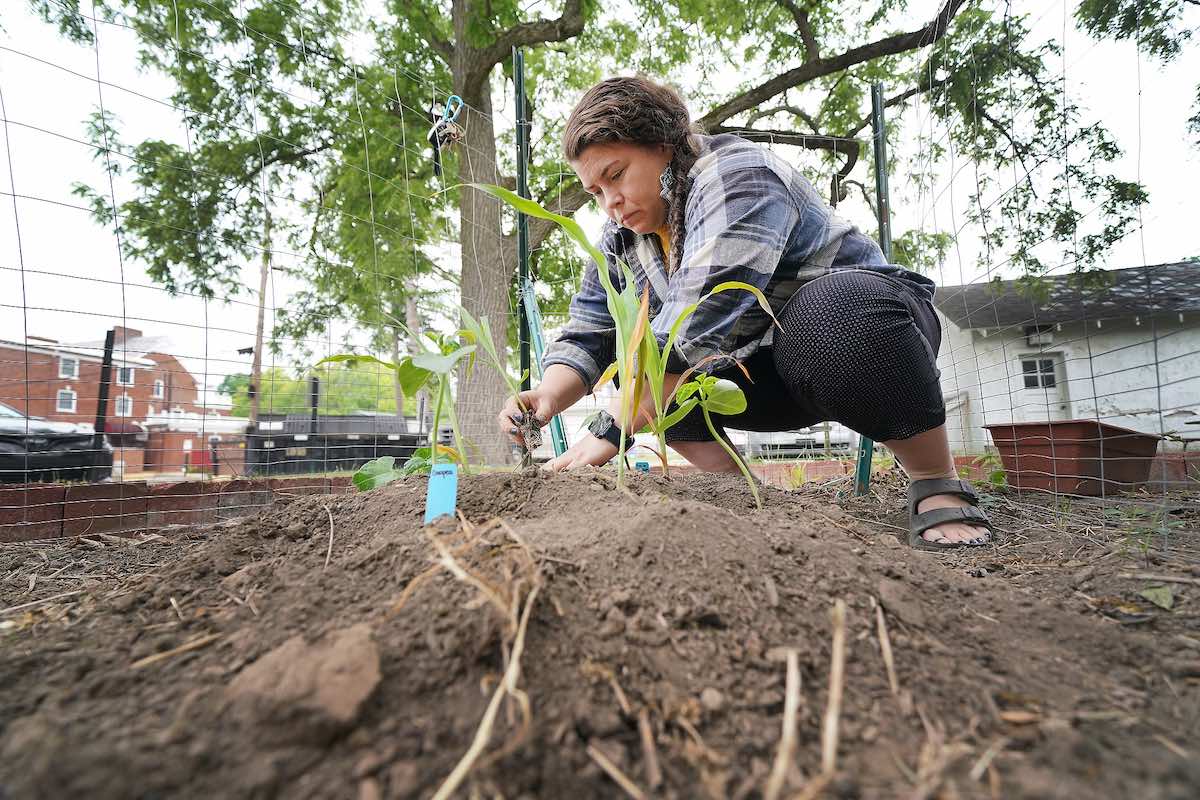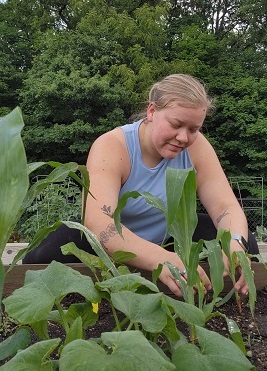Native American Educational and Cultural Center (NAECC) collaborates with Purdue Student Farm to continue Three Sisters garden
“In a Three Sisters garden we learn from the plants how to work together, protect and support each other, as each plant helps the other to grow stronger; this is why we call them sisters.”
In 2022, the Purdue Student Farm collaborated with the Purdue Native American Educational and Cultural Center (NAECC) to establish the Purdue NAECC Three Sisters Garden.
“The NAECC has been very intentional with their planning for the garden,” said Chris Adair, Purdue Student Farm manager. The NAECC chose to plant seeds from tribal nation seed banks to create a Three Sisters garden.”
A Three Sisters garden refers to the planting of main agricultural crops used by indigenous peoples of North America: maize, pole beans, and squash (gourd, pumpkin). In a technique known as companion planting or interplanting, the maize and beans are often planted together in mounds or small hills and the squash is typically planted between these mounds. The cornstalk serves as a trellis for the climbing beans, the beans provide nitrogen and help to stabilize the corn stalks where the large leaves of the squash plants provide shade, helping to keep the soil moist and making it less opportune for weeds to grow.
 “The Student Farm provided guidance and support to start our Three Sisters garden,” said Felica Ahasteen-Bryant (Diné), director of the NAECC. “We specifically chose different varieties of seeds to honor our tribal nations, including Hopi corn and Cherokee beans. The tribal nation seeds provide a special connection to our ancestors and the garden gives us nourishment and a physical and spiritual connection with the land.”
“The Student Farm provided guidance and support to start our Three Sisters garden,” said Felica Ahasteen-Bryant (Diné), director of the NAECC. “We specifically chose different varieties of seeds to honor our tribal nations, including Hopi corn and Cherokee beans. The tribal nation seeds provide a special connection to our ancestors and the garden gives us nourishment and a physical and spiritual connection with the land.”
This year, several Sloan Foundation Indigenous Graduate Partnership scholars have been involved with the garden. The Sloan Indigenous Graduate Partnership supports Native American students pursuing MS and PhD degrees. In June, Ramona Dwyer (Anishinaabe) a master’s student focusing on wildlife in the Department of Forestry and Natural Resources, helped to plant corn, pole beans and bush beans at the NAECC. The Purdue Student Farm helped to start the plants in the greenhouses before transplanting them into the NAECC garden.
“Food is an important piece of sovereignty,” said Dwyer. “This is why when colonization happens anywhere one of the first steps is to interrupt the traditional ways of gathering and growing food. Additionally, reciprocity is very important to us Anishinaabe and many other indigenous peoples. In a Three Sisters garden we learn from the plants how to work together, protect and support each other, as each plant helps the other two grow stronger; this is why we call them sisters.”

Rebecca “BeKa” Leuschen-Kohl (Choctaw Nation of Oklahoma), graduate student and Sloan Indigenous Scholar in the Department of Botany and Plant Pathology, helped to connect heirloom bean seeds from the Choctaw Nation seed bank to include in this year’s NAECC garden planting.
“As a graduate student studying plant diseases, I often look back and think about how my ancestors would want me to approach my research,” says Leuschen-Kohl. “The Three Sisters garden highlights the importance of nutrient exchange, the microbiome, and abiotic conditions that contribute to a bountiful harvest. These conditions parallel major topics in plant-based research that we see here at Purdue.”

Rebecca "BeKa" Leuschen-Kohl planting at the West Lafayette Community Garden
Leuschen-Kohl is currently working with Ian Thompson, Tribal and Historic Preservation Officer of Choctaw Nation of Oklahoma and Jacque Putman, Growing Hope Program Coordinator to bulk seeds found on an early Choctaw settlement in Mississippi. The seeds will become a part of the Choctaw Nation Growing Hope Program, to share seeds and informational resources with tribal members to aid in producing healthy, sustainable cultural food.
“Helping to grow these plants allows me to connect with my Choctaw community while I am at Purdue obtaining my graduate degree,” says Leuschen-Kohl.
For more information about the Purdue Student Farm visit, https://www.purdue.edu/hla/sites/studentfarm/
For more information about the NAECC visit, https://www.purdue.edu/naecc/





